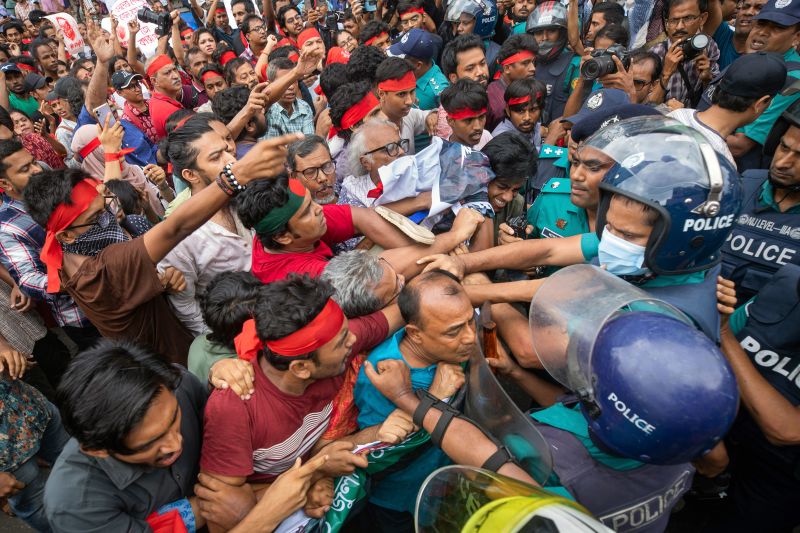The Bangladesh government has taken a crucial decision following a wave of violent protests sweeping across the country, which has now seen more than 200 deaths. The government has banned the Jamaat-e-Islami party, considered one of the most powerful Islamic political parties in the country.
Jamaat-e-Islami has a complex history in Bangladesh, with the party’s political evolution often instigating deep-seated societal divisions. The party has been around since pre-independence days and is accused of serious crimes committed during the country’s liberation war in 1971. This move by the government seeks to curb the escalating tension and violence in the country, restoring law, order, and safety for its citizens.
The violent protests disrupted the normal functioning of the country, leading to distress and panic among the general public. Stemming primarily from Jamaat-e-Islami’s base, the protests were a reaction against the trials of Jamaat leaders connected to war crimes committed during the 1971 Bangladesh liberation war. Many saw these trials as politically motivated, instigating some of the most violent political reactions seen in Bangladesh through rallies, strikes, and other forms of public protests.
The government’s decision came amid national and international pressure to take strong action against the unruly factions causing the chaos. The ban on Jamaat-e-Islami was seen as a pivotal move in addressing the country’s volatile political situation. The decision not only acted to stop the violent outbursts, but it also signalled the government’s stance against political parties that put the country’s stability at risk.
While the decision was welcomed by various national and global entities, it also sparked criticism from different sections. Supporters of Jamaat-e-Islami pointed out that the ban negates the democratic rights of the party and its followers. They argue that it constrained the space for dialogue and peaceful political discourse, making room for further dissent and polarisation.
In a demonstration of judicial support for the government’s decision, the High Court declared Jamaat-e-Islami’s registration illegal, stating that the party’s charter violated the constitution’s secular principles. This verdict ensured that the party cannot participate in any future elections, thereby restraining its political influence.
In the aftermath of the ban, Bangladesh faces critical issues as it attempts to navigate towards a peaceful and stable political environment. Civil society groups and political analysts have emphasised the need for a broad-based and inclusive dialogue to address the concerns of all political entities in a democratic manner. Furthermore, the government must take steps to ensure that such a ban does not exacerbate tensions or lead to further violence.
As a gateway to restoring peace, safety, and democracy in the country, banning Jamaica-e-Islami is seen as the Bangladesh government prioritising security and unity. However, the ban’s ramifications stack up as potentially profound and long-term, pushing Bangladesh onto a significant and difficult path of political reconciliation in the days to come. The future of Bangladesh’s political climate hangs in the balance, with the outcome of this decision carrying vast implications for the nation’s political, social, and economic stability.




